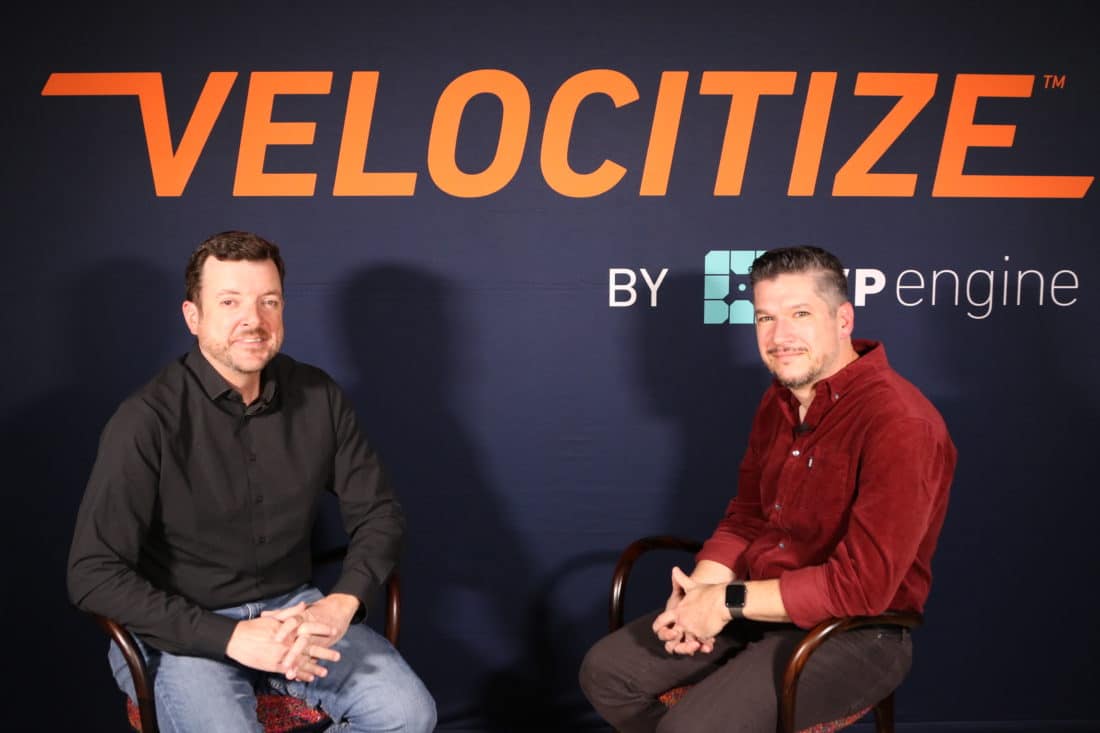The stuff you love the most, that provides you the most value as a consumer, is probably driven by AI.
Mark Shewmaker is a freelance executive creative director with an extensive background in creative direction, user research, and design, as well as broad experience in financial service marketing. He provides key creative services to top-tier clients, including a global management consulting firm. Past clients include such top brands as Microsoft, Verizon, Nike, Wells Fargo, Walmart, and IBM.
Previously Shewmaker served as Executive Creative Director at Organic, a leading digital marketing and design agency.
In this episode of Velocitize Talks, Shewmaker shares his thoughts on the user experience (UX), Artificial Intelligence (AI) and the role of UX in e-commerce.
Users rule (1:32)
What’s important to people? Why are they even talking with us to begin with? You really want to look at their journey and craft how to talk to them, so you’re delivering value.
It’s critical for an agency to be able to differentiate themselves through branding and UX design due to multiple competing interests for a consumer’s already limited time.
PwC found that even when people love a company or product, 59% would walk away after several bad experiences; 17% say they’d walk away after just one bad experience.

You better shop around (2:32)
At the end of the day you are still replicating something that people have been doing for ages: shopping.
There are a number of misconceptions in the industry concerning the pivotal role that UX plays in ecommerce. There’s a basic need to think about what your customers truly want so you’re able to design the shopping experience that meets their rising expectations.
According to UX research group Baymard Institute, two out of three users ultimately choose to abandon their shopping cart, a clear flaw in the UX design (including account logins and the checkout process).
Think cognitively (4:58)
We’ve gone all in on AI. What we’re learning is not just how to do it, but how to teach our clients how to do it.
The cognitive technologies of today, including AI, have impacted digital marketing in every way, shape and form. And those ways, shapes and forms will continue to evolve over time. During Shewmaker’s tenure at Organic, they created Synthetic, a division dedicated entirely to cognitive technology and AI-driven solutions.
The more often AI is used, the “smarter” it becomes, meaning the UX design can continue to be refined. As the experience improves and becomes more personalized, it will be better equipped to meet your consumer’s expectations.
The human element (7:38)
Everything will be connected at some point. Everything that we interact with will be distributed through a network.
At its core, UX bridges the technology with the human. People love the value, says Shewmaker, but “there’s a point when we start putting our hands up a little bit…The technology may need a little bit of oversight to make sure it doesn’t go too far.”

The good site (10:07)
We have to separate the World Wide Web from the internet at large.
The web and the internet are very different entities. “Anyone on this planet can get up, and send a message to the rest of the planet,” Shewmaker notes. “The web is still the best thing to do that with.”
At the end of the day, marketers need to centralize their message on one platform; the website remains the optimal place to do that. Content on your site needs to be dynamic, engaging and accessible, and page load time needs to be practically instantaneous.

To keep up with Shewmaker, follow him on LinkedIn.
This interview was originally recorded in 2018 in San Francisco.





Join the conversation